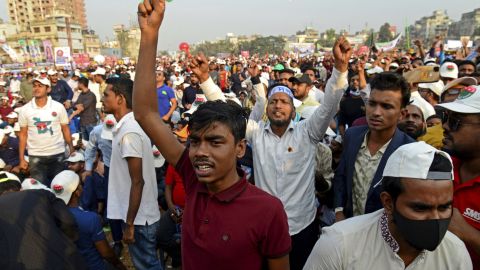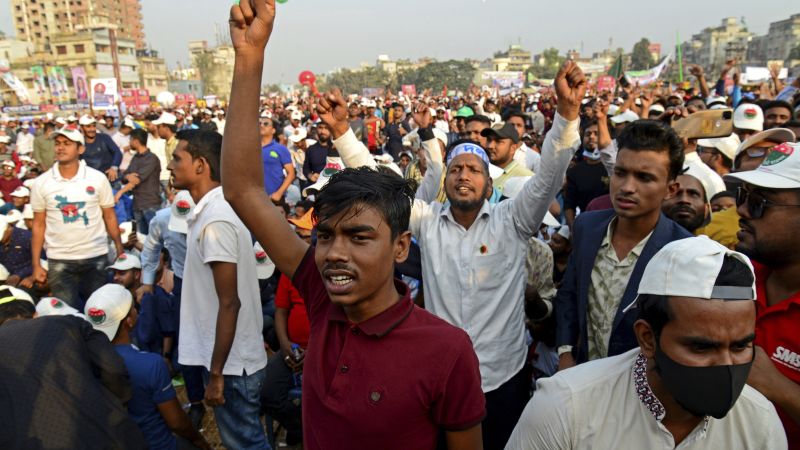New Delhi
CNN
—
Tens of thousands of protesters took to the streets in Dhaka on Saturday demanding the dissolution of parliament to make way for new elections and the resignation of Bangladesh Prime Minister Sheikh Hasina.
The mass protest in the capital was organized by the opposition Bangladesh Nationalist Party (BNP), which accuses Hasina of not dealing with rising fuel and living costs.
Saturday’s protest comes amid a spate of demonstrations in Bangladesh calling for Hasina to step down and call for new elections.
Hasina responded by calling opposition leaders “arsonists” and warning people against allowing the BNP – the main opposition party – back to power.
Several arrests were made in the run-up to Saturday’s protests.
Police arrested two senior BNP leaders on Friday, including the party’s general secretary Mirza Alamgir. Authorities said Alamgir would be charged without giving any further information.
At least one man died in clashes between protesters and police on Wednesday, when security forces fired tear gas to disperse people who had gathered outside the BNP’s office in the capital.
Hasan Mahmud, Bangladesh’s Information and Broadcasting Minister, said authorities believe the man died after being injured [Molotov] cocktails made by the activists and accused the BNP of “creating chaos,” according to a report by state media outlet BSS.
The Bangladesh Electoral Commission has not announced a date for the next parliamentary elections, which are due in late 2023.
Since 2009, the Bangladesh Awami League has been in power under the leadership of 75-year-old Hasina.
Hasina won a third consecutive term as Prime Minister in 2018 in a national election marred by deadly violence and allegations of ballot rigging.

Meenakshi Ganguly, South Asia director at Human Rights Watch, criticized the government’s response to the protests.
“Concerned governments should publicly call on the prime minister to allow Bangladeshis to freely engage in peaceful political activities,” she said.
“Sheikh Hasina should accept the challenge of democratic rule, not authoritarian abuse.”
US Ambassador to Bangladesh Peter D. Haas said in a statement Thursday the embassy is concerned about reports of intimidation and political violence and called on authorities to investigate and protect freedoms of expression and assembly.





